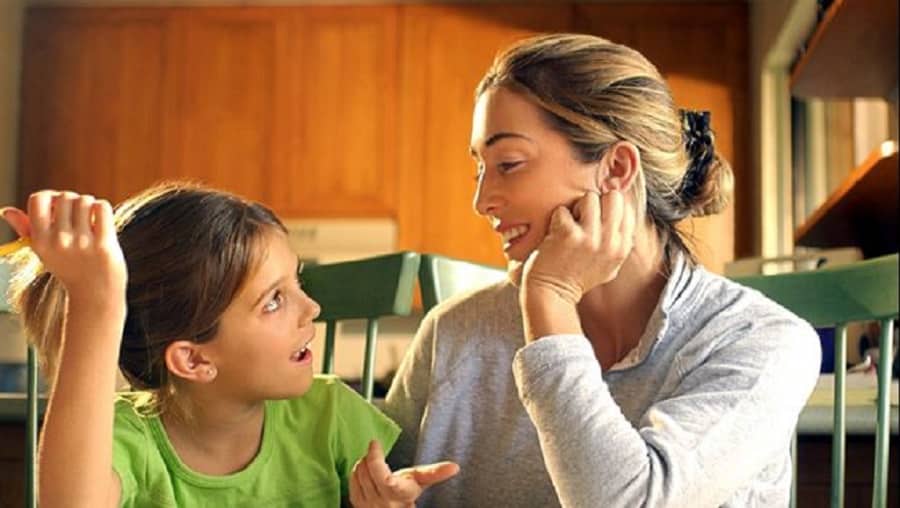Parents have a very deep impact on the life of their children. Great thinkers and modern authors have said that one’s life unfolds his thoughts and feelings. What a child thinks and feels at the tender age of 7-8 years and later during teenage, this impression in the child’s mind starts reflecting in his or her life in terms of his academic performance, harmony in interactions and effectiveness in task accomplishment.
Recognizing the unique personality of each child is crucial, as it helps parents tailor their approach to provide effective guidance and support. Personality assessments and insights offered by resources like personality-type.com can assist parents in comprehending their child’s personality type better. By gaining a deeper understanding of their child’s individuality, parents can create a nurturing environment that fosters emotional well-being, self-confidence, and harmonious relationships, laying the foundation for a successful and fulfilling life.
How parents’ personality affects a child’s mind
The strongest force which affects a child’s thoughts and feelings are personality and behavior of the parents. Every child is born with innocence which carries purity. If parents have human virtues, wisdom and maturity in their behavior, the purity and innocence is gradually replaced by wisdom and maturity as the child group up. Such a child excels in academic performance. He or she also reflects sincerity and happiness in his general behavior and attracts positive people in life.
However, when there is emotional instability in parents, it affects child’s personality as well as his or her life in a negative way. Parents’ personality and their actions sometimes write the most important parts of script of a child’s life.
Eric Berne’s theory of personality popularly
To understand the impact of parents’ personality on child’s life and behavior, we can take the help of Eric Berne’s theory of personality popularly known as Transactional Analysis. According to this theory, each one of us carries some recordings in our brain which shape our personality.
Eric Berne classifies these recordings or impressions into three categories:
- Those impressions which show to us the sense of right or wrong or moral duties, rules, norms, etc. or, which inspire us to help others, nurture others or feel concerned for others. As per Eric Berne, most of these recordings are a result of our observation of parents’ behavior or parental teachings. He names these as “Parent” or “P”. We all have impressions of Controlling Parent and Nurturing Parent in our brain.
- Those impressions which we gather on the basis of our own experiences. When we do something actively and see its outcome, we gather some new information or some new insight. In this process, we develop our own understanding about the world. These impressions are named as “Adult” or “A”.
- Our natural reactions to various situations show in terms of our feelings. These form the most spontaneous part of our personality and are named as “Child” or “C”.
According to Eric Berne, each person’s personality has behaviors guided by recordings in his or her “P”, “A” and “C”. The quality and measure of these recordings differ from person to person. One, who has a lot of impressions of Controlling Parent has a commanding personality. On the other hand, one who has a lot of recordings of Nurturing Parent is a caring and affectionate person.
Some people who have experience (“A” recordings) are good in analyzing, decision making and observation. Those who have large “C” recordings are friendly and joyful if most of the “C” recordings are based on positive feelings.
However, if a lot of negative feelings are recorded, he or she becomes over sensitive, moody or irritable. To be an effective and successful parent, one needs to have a balance of “P”, “A” and “C”. The most important part is the quality of “C” recordings. Most of our thoughts depend on our feelings. If we feel positive most of the times, our thoughts, words, and actions are in right direction.
How can you be a great parent
Keep in mind that characteristics in your child’s early years you find negative may turn into positive qualities as he grows. But for this to happen you need to show the way to your child through your positive personality. Children are very impressionable. They model everything you do as a parent and try to do the same in their own lives. It is important that you set the right examples. Negative examples are harmful to a child’s development and can lead to bad behavior.
. Negative examples can hinder their development and lead to undesirable behaviors. To navigate this path of parenthood with guidance and support, you can explore helpful resources like those found at https://alldayparenting.com/. These resources can provide valuable insights and strategies to assist you in raising a well-rounded and emotionally healthy child. In addition to seeking external resources, it’s also essential to foster open communication with your child. Building a strong and trusting relationship with them allows you to understand their needs, concerns, and aspirations.
As parents, we should model the life we want our children to lead. To help them lead a life of character and become dependable and accountable for their words and actions. Show your kids what it means to give selflessly and joyfully by volunteering for a service project or with a community group. Leave people and places better than you found them, and your kids will take note and do the same.
Most parents when asked when asked after their child’s thoughtsrespond: “I’ve never thought about my child’s thoughts before…”.
I really want to ask you Is it not our job as parents to get our children to do the right thing, to teach them, and to make them happy?”. So by interacting with your child, thinking about what he thinks of life and by setting good examples with your personality you might help your children a long way in being the leaders of tomorrow.




thanks for the article. helpful to the parents, children & society.
This article and many other on your site are very interesting.
You should continue and grow as a blog.